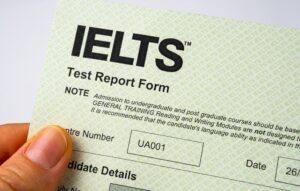4) Concentrate on your strengths
In the entire 500-word essay, you are trying to sell yourself to the university as a worthy student.
So, don’t hold back. List down all your strengths and go into detail about how it contributed to your experiences, goals, and values. If you have previous work experience or have participated in any volunteer activities before, use it as an example to showcase how your strengths made a positive impact.
For example, if you have good time management skills, you may have used it to help out in a high school project. Explain how you contributed to the project and used your time management skills to ensure that everything was completed on schedule.
You can also add about what you learned from this experience. Elaborate on how it formed your mindset and led you to choose the course of your choice, moulding you into the knowledgeable and mature person you are today.
You can also add in any future plans you may be considering to pursue with your skills once you graduate. This shows you have initiative and ambition by planning for the future!
5) Get someone to proofread it
Ever heard the saying ‘A writer shouldn’t edit their own work?’
That’s because when a writer creates a good, creative piece, they get attached to it. This creates a bias towards their own work and prevents them from seeing it for what it really is. The same concept applies when you write a personal statement.
That’s why you need a proofreader—someone who can give you feedback and tell you what can be improved or changed in the essay.

Your proofreader can be a family member, friend, or classmate. Make sure they check your essay for grammatical errors and spelling mistakes, as the admissions officer will be evaluating your writing ability as well.
6) Take your time!
This is important! Don’t rush it.
I know you want to get it over and done with, but a well-written essay won’t be completed in a day. In fact, it took me a whole week to write my personal statement. Then I had to wait another week for my friends to proofread and give their feedback. At one point, I was so dissatisfied with my topic that I completely changed the content, delaying it for another week.
The point is, don’t be afraid to make changes. Sometimes it’s a good idea to take a break for a day or two so you can come back to it with a fresh state of mind.
7) Be honest
Lastly, be honest in your essay. It can be tempting to make up a huge story about how you led your high school football team to championship after passing tryouts, but it won’t last you long.
Instead, be honest about what you have learned. Universities do not rank the acceptance of a student by the number of achievements in their personal statement, but rather, the beliefs and values that guide your choice to study this course.

What you put in your personal statement may not be what you want to do at the end of your degree, but it’s about having the drive and focus to achieve what you set out to do when you begin university. Channel that ambition into your essay, and you’re bound to make a good impression!
Be yourself. Everyone else is already taken. -Oscar Wilde



















